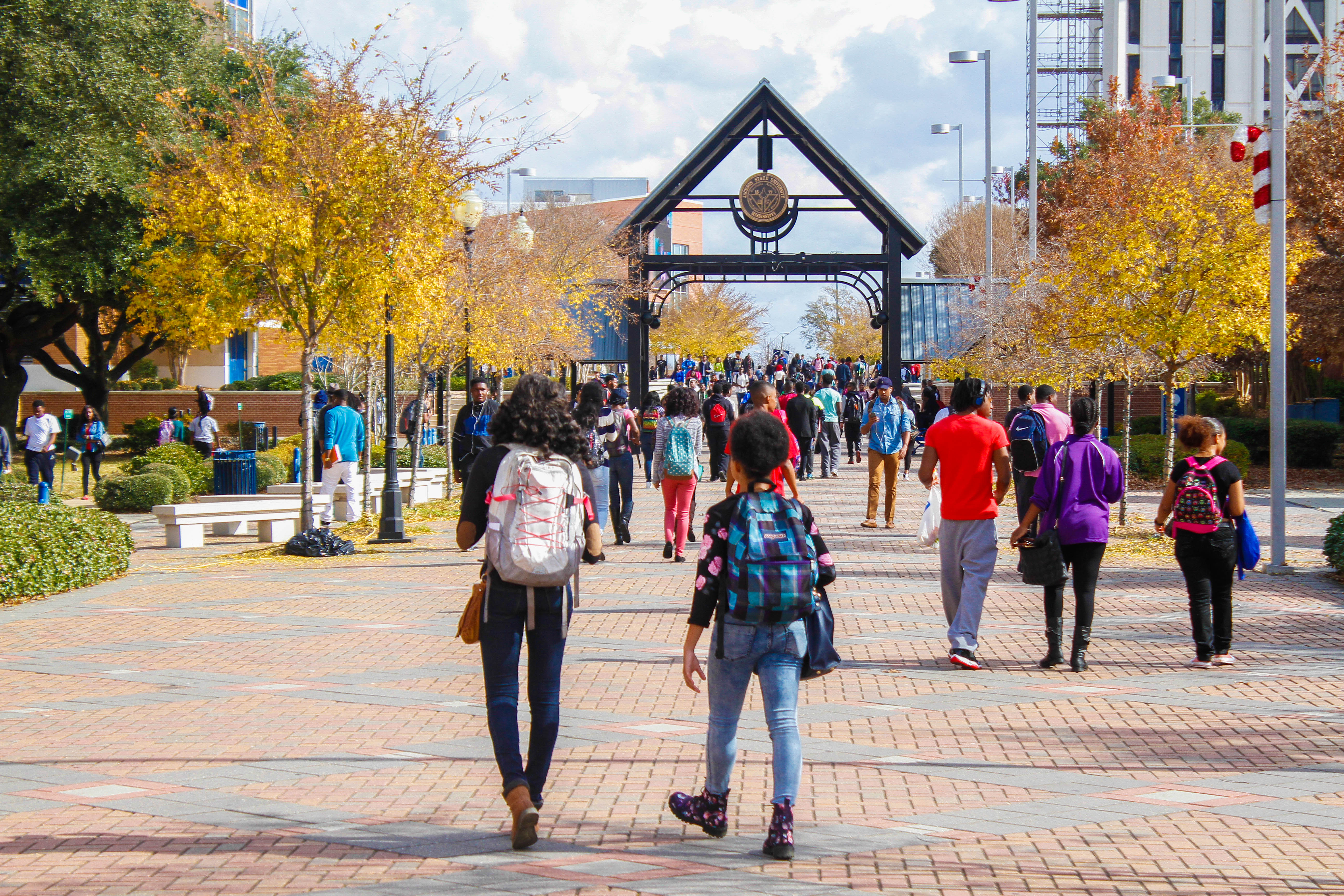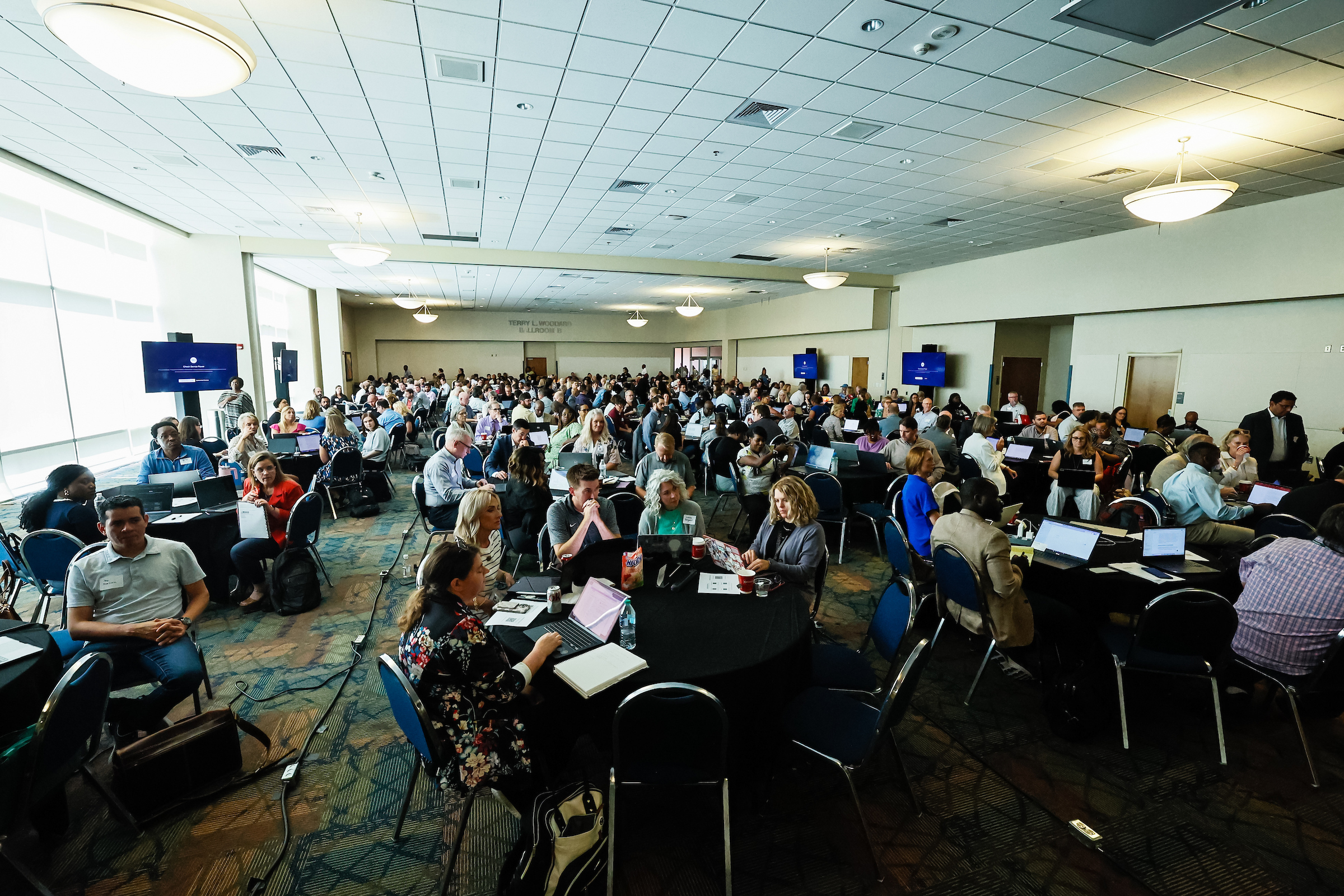-
Finances Are Leading Barrier for those Not Attending
-
Majorities Urge Free College for Low-Income and Minorities
-
Majorities Urge Federal Funding for Historically Black Universities and Colleges (HBUCs)
-
Large Percent (42.2%) Willing to Pay More in Taxes to Increase Financial Assistance for Lower-Income Students
[hr]
The Polling Center at Jackson State University’s Institute of Government has released a national survey of 1,000 adults. The Poll covered perceptions of college affordability, barriers to attending among those who missed college, and support for increased financial assistance programming. The Poll was conducted May 11-16, 2016.
 Two-thirds, 65.7%, of all respondents have had some experience with college – either currently attending, having attended or graduated.
Two-thirds, 65.7%, of all respondents have had some experience with college – either currently attending, having attended or graduated.
Of this group, a large percentage (48.7%) suggested it was very or somewhat difficult to pay for college.
Further, one-third (32.6%) suggested they experienced a delay or postponement during their college experience due to the cost.
According to college attendees, the leading resources for funding their education were their own personal funds (61.0%), parent financial support (45.0%), grants such as Pell (39.6%) and scholarships (36.1%). Some also accessed college savings/savings accounts (11.0%) and gifts (9.3%).
Unfortunately, for two-thirds, 67.3%, of those not attending college, finances were the primary barrier.
Among those not attending college, the primary reasons centered on lacking the financial resources (46.5%) and not desire/no interest (40.4%). Others mentioned that their preferred avocation did not require college (12.0%), could not secure find financial assistance (12.0%), was accepted but ultimately could not afford to attend (5.3%), couldn’t qualify for admission (3.5%) or family had too much money to qualify for financial assistance (3.5%).
Respondents were presented with the following statement: “Statistics show that 79% of students coming from the top quartile of family income receive a BA Degree while just 11% of those students coming from the bottom quartile of family income receive the same BA Degree. These statistics and declines in the number of Pell Grants and other financial assistance awards make it increasingly difficult for college bound students.”
Majorities agreed with a number of statements related to financial assistance for college attendance…
- 52.7% agreed (somewhat or strongly) that public colleges and universities should be free of charge for everyone;
- 52.2% agreed (somewhat or strongly) that public colleges and universities should be free of charge for students from lower-income families; and
- 52.2% agreed (somewhat or strongly) that Historically Black Universities and Colleges (HBUCs), which strive to support minority students, should receive federal funding to grow their efforts.
Further, strong agreement was also found in a number of other financial assistance areas…
- 47.2% agreed (somewhat or strongly) that there are fewer financial assistance opportunities for lower income students;
- 42.2% agreed (somewhat or strongly) that they would be willing to pay reasonably more in taxes to increase financial assistance programs for lower-income students trying to attend college; and
- 40.4% agreed (somewhat or strongly) that there are fewer financial assistance opportunities for minority students in the United States.
ABOUT THE POLL: The Poll was conducted by The Polling Center at Jackson State University’s Institute of Government. Polling by the Center is conducted on a regular basis and may also include spontaneous polling on occurring events. Please click here for full Poll Report.
METHODOLOGY: The Poll sampled opinions of 1000 approximately proportional to state population contribution nationwide. The survey was conducted May 11 – 16, 2016. All surveys were conducted using an online survey instrument. The poll has a +/- 3.0 percent margin of error at a 95 percent confidence level on a composite basis.









